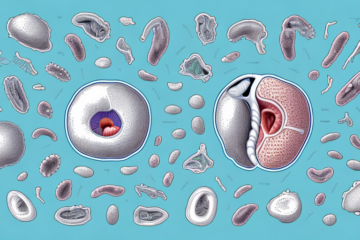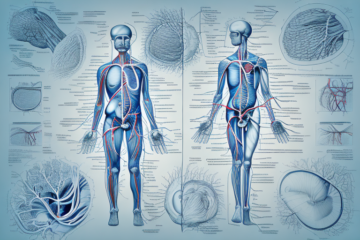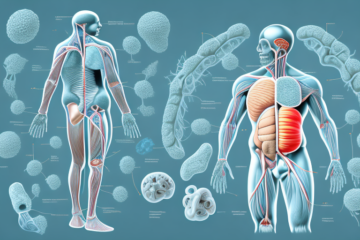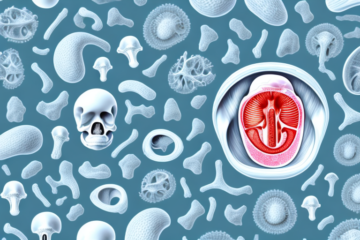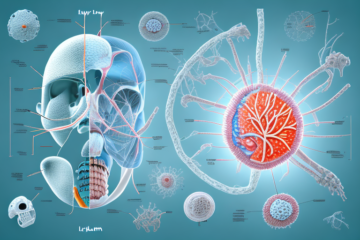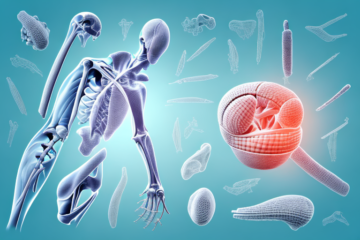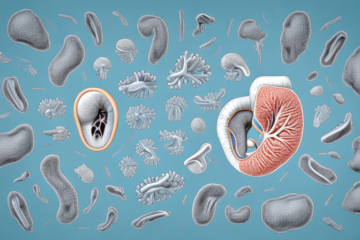The penis is a vital male organ that serves a crucial role in reproduction. As such, it is essential to understand its anatomy, function, and common problems. This article delves into the nitty-gritty details of the penis, providing comprehensive coverage of its various aspects. So sit tight, grab a cup of coffee and let’s explore the fascinating world of the penis.
The Anatomy of the Penis: Understanding the Male Genitalia
To understand the penis fully, it is essential to start with its anatomy. The penis has three parts: the root, shaft, and the glans. The root of the penis extends deep into the pelvis, while the shaft is the cylindrical body of the penis that contains erectile tissue. Lastly, the glans is the tip of the penis, characterized by the urethral opening, where urine and semen are expelled.The penis also has two compartments: the corpora cavernosa and the corpus spongiosum. The corpora cavernosa are two parallel columns of erectile tissue in the shaft of the penis; these fill with blood during an erection. The corpus spongiosum is a single column of erectile tissue surrounding the urethra that helps keep it open where it passes through the penis.The penis is also home to many essential nerves, blood vessels, and muscle fibers, which work together to enable normal sexual function.
It is important to note that the size and shape of the penis can vary greatly from person to person. The average erect penis size is around 5.16 inches (13.12 cm), but it is not uncommon for it to be smaller or larger than this. Additionally, the penis can have a curved shape, which is usually not a cause for concern unless it causes pain or difficulty during sexual activity. Understanding the individual differences in penis anatomy can help promote body positivity and reduce anxiety surrounding sexual performance.
The Function of the Penis: How it Plays a Crucial Role in Reproduction
The primary function of the penis is reproduction. During sexual intercourse, sperm from the male’s testes enter the female’s vagina, moving towards their destination via the penis. The penis also works to achieve an erection, which is a necessary component of sexual activity. An erection occurs when the corpora cavernosa fills with blood, trapping the blood inside the erectile tissue. As a result, the penis becomes rigid and hard, allowing for penetration.
In addition to its reproductive function, the penis also plays a role in urination. The urethra, which is a tube that carries urine from the bladder to the outside of the body, runs through the center of the penis. When a man urinates, the muscles in the bladder contract, forcing urine out of the body and through the urethra. The penis acts as a conduit for the urine to exit the body, allowing for efficient elimination of waste products.
The Role of Testosterone in Penis Development and Health
Testosterone is a hormone that significantly influences the development and health of the penis. It is responsible for the growth of the penis and facilitates its normal functioning. Testosterone is also responsible for male reproductive health, sperm production and motility, and sex drive. Low levels of testosterone can cause various sexual health problems, including erectile dysfunction.
Testosterone levels in males typically peak during adolescence and early adulthood, and gradually decline with age. However, certain medical conditions or lifestyle factors, such as obesity and chronic stress, can also contribute to low testosterone levels. In addition to sexual health problems, low testosterone levels can also lead to decreased muscle mass, fatigue, and mood changes.
Testosterone replacement therapy (TRT) is a treatment option for men with low testosterone levels. TRT can improve sexual function, increase muscle mass and bone density, and improve overall quality of life. However, TRT is not without risks and potential side effects, such as acne, breast enlargement, and an increased risk of blood clots and prostate cancer. It is important for men considering TRT to discuss the potential benefits and risks with their healthcare provider.
Common Penis Problems and How to Identify Them
Penis problems are prevalent and can significantly affect sexual health and quality of life. Some of the most common problems include priapism, Peyronie’s disease, and phimosis. Priapism is an erection that lasts too long and can cause significant discomfort and pain. Peyronie’s disease is characterized by the formation of scar tissue in the penis that causes curvature and can lead to painful erections. Phimosis is a condition characterized by tight foreskin that is difficult to retract. Identifying these problems is crucial to seek appropriate medical attention. Most penis problems can be treated and may require specialist medical advice or intervention.
Another common penis problem is erectile dysfunction (ED), which is the inability to achieve or maintain an erection sufficient for sexual intercourse. ED can be caused by various factors, including physical conditions such as diabetes, high blood pressure, and heart disease, as well as psychological factors such as stress and anxiety. Treatment options for ED include medication, lifestyle changes, and therapy.
Additionally, sexually transmitted infections (STIs) can also affect the penis. Some common STIs that can cause penis problems include gonorrhea, chlamydia, and genital herpes. Symptoms of STIs may include pain, discharge, and sores on or around the penis. It is important to practice safe sex and get tested regularly for STIs to prevent and treat any potential problems.
Erectile Dysfunction: Causes, Symptoms, and Treatment Options
Erectile dysfunction is one of the most common sexual problems experienced by men. It is characterized by the inability to achieve or maintain an erection sufficient for sexual intercourse. Erectile dysfunction can have various causes, including psychological and physiological factors. Symptoms of erectile dysfunction include reduced sex drive, trouble maintaining an erection during sexual activity, and a decrease in erectile rigidity.Treatment options for erectile dysfunction include lifestyle changes, medication, or surgical intervention. Counseling may also be required to address any underlying psychological factors.
One of the most common physiological causes of erectile dysfunction is cardiovascular disease. This is because the blood vessels that supply blood to the penis can become damaged or narrowed, reducing blood flow and making it difficult to achieve an erection. Other physical causes of erectile dysfunction include diabetes, high blood pressure, and hormonal imbalances.
In addition to medical treatment, there are also natural remedies that may help improve erectile dysfunction. These include exercise, a healthy diet, and certain supplements such as L-arginine and ginseng. However, it is important to consult with a healthcare professional before trying any natural remedies, as they may interact with other medications or have potential side effects.
The Importance of Safe Sex Practices for Penis Health
Safe sex practices are crucial for maintaining optimal penis health. Sexually transmitted infections (STIs) can significantly affect sexual and reproductive health. These infections can cause long-term medical complications, including infertility. Safe sex practices include the use of condoms or other barrier contraception and regular STI testing.
Another important aspect of safe sex practices is communication with sexual partners. It is important to have open and honest conversations about sexual history and STI testing before engaging in sexual activity. This can help reduce the risk of contracting or spreading STIs.
In addition to physical health, safe sex practices can also have a positive impact on mental health. Engaging in safe sex can reduce anxiety and stress related to the fear of contracting an STI or unintended pregnancy. It can also promote a sense of trust and intimacy in sexual relationships.
How to Keep Your Penis Healthy: Tips for Maintaining Optimal Sexual Health
Maintaining optimal sexual health should be a priority for all men. This includes regular exercise, a healthy diet, not smoking, and avoiding excessive alcohol consumption. It is also important to practice good genital hygiene, including washing the penis with mild soap and warm water regularly.
In addition to these basic tips, there are other things you can do to keep your penis healthy. One of the most important is to practice safe sex. This means using condoms during sexual activity to prevent the spread of sexually transmitted infections (STIs). It is also important to get tested regularly for STIs, especially if you are sexually active with multiple partners.
Another way to maintain optimal sexual health is to address any underlying medical conditions that may be affecting your penis. This includes conditions such as diabetes, high blood pressure, and heart disease, which can all impact sexual function. If you are experiencing any issues with your penis, such as pain, swelling, or difficulty achieving or maintaining an erection, it is important to speak with your healthcare provider to determine the underlying cause and develop an appropriate treatment plan.
The Relationship Between the Penis and Sexual Pleasure: Exploring Sensitivity and Nerve Endings
The penis is a highly sensitive and erogenous zone that plays a crucial role in sexual pleasure. The penis has many nerve endings, making it an essential part of sexual sensation and pleasure. Understanding the sensitivity of the penis and how it works can help improve sexual experiences and enjoyment.
One important factor that affects the sensitivity of the penis is age. As men age, the number of nerve endings in the penis may decrease, leading to a decrease in sensitivity. This can affect sexual pleasure and may require different techniques or stimulation to achieve the same level of enjoyment.
Additionally, certain medical conditions or medications can also affect the sensitivity of the penis. For example, diabetes can damage nerves and blood vessels, leading to decreased sensitivity. Medications such as antidepressants or blood pressure medications can also have an impact on sexual function and pleasure. It is important to talk to a healthcare provider if you are experiencing any changes in sexual function or pleasure.
Understanding Circumcision: Pros, Cons, and Considerations for Adult Men
Circumcision is a surgical procedure that involves removing the foreskin from the penis. There are many benefits and potential drawbacks to circumcision, and it is an individual choice that should be carefully considered. Some potential benefits of circumcision include improved hygiene and reduced risk of STIs. However, some potential drawbacks include a decrease in sexual sensation and the risks associated with surgery.
It is important to note that circumcision is often performed for religious or cultural reasons. For example, in some Jewish and Muslim communities, circumcision is a traditional practice that is considered a rite of passage. In these cases, the decision to undergo circumcision may be less about the potential benefits or drawbacks and more about cultural or religious identity.
For adult men who are considering circumcision, it is important to discuss the procedure with a healthcare provider and weigh the potential benefits and risks. It is also important to consider personal preferences and values when making the decision. Ultimately, the decision to undergo circumcision is a personal one that should be made after careful consideration and consultation with a healthcare provider.
The Connection Between Age and Penis Health: What to Expect as You Get Older
Age can significantly affect penis health. As men age, their testosterone levels decrease, potentially leading to decreased sexual function and a decrease in penis size. However, lifestyle factors can significantly affect these changes, and maintaining a healthy lifestyle can help mitigate age-related changes to sexual function.
It’s important to note that age-related changes to penis health can also include an increased risk of developing certain conditions, such as erectile dysfunction and Peyronie’s disease. These conditions can be caused by a variety of factors, including age, genetics, and lifestyle habits. It’s important for men to be aware of the potential risks and to seek medical attention if they experience any symptoms or concerns related to their penis health.
Fertility and the Penis: How Sperm Production Impacts Reproductive Health
Sperm production is closely linked to reproductive health, and healthy sperm are necessary for normal fertility. Many lifestyle factors can affect sperm production, including diet, exercise, and smoking. Understanding the factors that affect sperm production can help men maintain optimal reproductive health.
Overall, the penis plays a crucial role in male sexual and reproductive health. It is essential to understand its anatomy, function, and potential problems. Maintaining optimal penis health requires a range of strategies, including lifestyle factors and medical interventions. Remember, seeking medical advice for any penis problems is crucial to maintaining good overall health.
One of the most significant factors that can affect sperm production is age. As men age, their sperm count and quality tend to decline. This decline can lead to fertility problems and increase the risk of genetic abnormalities in offspring. However, there are steps men can take to maintain healthy sperm production as they age, such as maintaining a healthy weight, reducing stress, and avoiding exposure to environmental toxins.
In addition to lifestyle factors, certain medical conditions can also impact sperm production. For example, conditions that affect the testicles, such as varicoceles or infections, can lead to decreased sperm production. Hormonal imbalances, such as low testosterone levels, can also affect sperm production. It is essential to seek medical advice if you are experiencing any symptoms that may indicate a medical condition that could be impacting your reproductive health.


